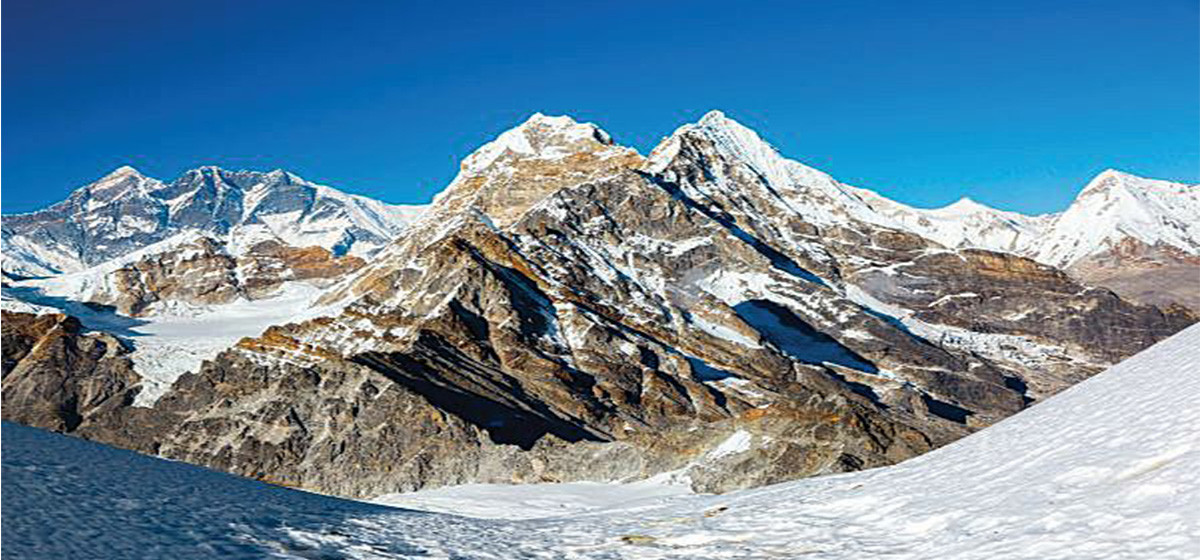Two billion people at risk of water insecurity
KATHMANDU, April 25: The “Snow Update Report 2025” reveals that snow cover in the Hindu Kush mountainous region dropped by 23.6 percent in 2025 compared to normal levels. The report, issued by ICIMOD, notes that snow levels have reached their lowest point in the past 23 years.
This sharp decline threatens to reduce water flow in 23 major river systems originating in the region, placing two billion people who rely on these rivers at risk of a water security crisis.
The report analyzes snowfall data from November to March between 2003 and 2025, showing a steady decline in snow accumulation. It further warns that the problem has intensified significantly over the last five years.
Seasonal snowmelt contributes nearly one-fourth of the annual flow in 23 major rivers that originate in the Hindu Kush mountainous region.
IFPRI, ICIMOD partner to boost climate-smart agriculture in Hin...

Rivers in the western part of the region rely more heavily on snowmelt than those in the east. Scientists warn that declining snowmelt could lower river levels and raise the risk of water shortages during the summer.
They also caution that people living in lower coastal areas-especially those exposed to extreme heat-face increased threats of heat waves and water crises.
Sher Muhammad, ICIMOD's remote sensing expert and lead author of the report, called the recurring nature of this trend deeply alarming. He said the report offers a broad regional overview but stressed that each river system must respond based on its specific conditions. He added that regions that rely primarily on snowmelt for water need even greater focus.
The report shows that snow cover dropped the most in the Mekong and Salween basins by 51.9 percent and 48.3 percent, respectively. Snow presence also declined by 29.1 per cent on the Tibetan Plateau, 27.9 percent in the Brahmaputra basin, 26.3 percent in the Yangtze, and 24.1 percent in the Ganges.
While releasing the report, ICIMOD Director General Pema Gyamtsho said carbon emissions have severely and irreversibly reduced snow presence in the Hindu Kush region. "To address the current crisis, we need science-based, long-term policies," he said.
He urged stakeholders to build long-term resilience in water, agriculture, and energy sectors and to implement policy shifts in regional cooperation and transboundary water management.
Experts who prepared the report urged the development of river-system-specific water management strategies to reduce the impact on agriculture, hydropower, and other vital ecosystem services.
They described the uneven snow presence as more than just a mountainous issue, calling it a multidimensional crisis directly tied to South Asia's food, energy, and water security. They stressed the need for scientists, policymakers, and regional partners to come together and drive collaborative solutions.






































